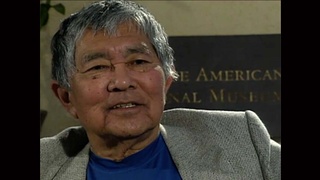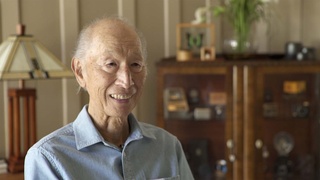Interviews
Patriotism versus loyalty
Patriotism is more showing your faith and love for your country, where loyalty often has to be proven. In the case of December 7th, I think the Japanese felt, in fact, even embarrassed that Japan would attack Pearl Harbor. And, I think Japanese, actually, were very, very loyal to America, though America did not think so.
Date: June 16, 2003
Location: California, US
Interviewer: Karen Ishizuka, Akira Boch
Contributed by: Watase Media Arts Center, Japanese American National Museum.








